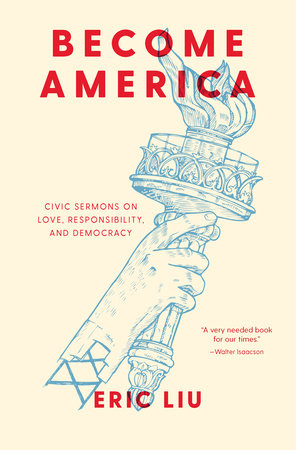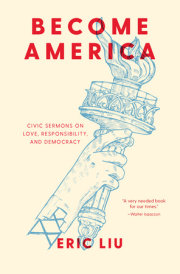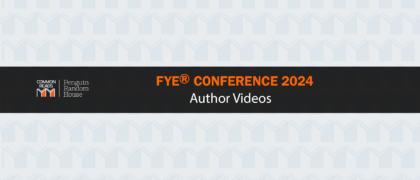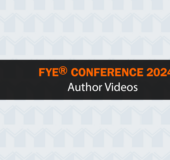PREFACE
"This is a book of reckoning and repair.
Throughout 2016, Jená Cane and I kicked around ideas for a new civic ritual that would have the moral pull and communal feel of a faith gathering. We’re the cofounders of a nonprofit called Citizen University, whose mission is to foster a culture of powerful citizenship in the United States. (We’re also spouses!) Jená and I were drawn viscerally to this idea of a civic analogue to church but never had time to develop it. Then came the presidential election. The morning after, we and our team decided to act.
Four days later, we put together the first ever Civic Saturday. It was held in the basement reading room of Elliott Bay Book Company in Seattle. Given the short notice and scramble, we expected maybe forty people. More than 220 showed up, packing every corner of that low-ceilinged underground space. Together, we began to make sense of our tumultuous moment—and its origins in decades of degradation and predation in public life under the rule of both parties.
Civic Saturday has the arc of a faith gathering: we sing together, we turn to the strangers next to us and talk about a common question, we hear poetry and readings, there is a sermon that ties those texts to the issues and ethical choices of the times, and then we sing together again and reflect on what actions we commit to taking. But this gathering is not about church or temple or mosque religion. It is about American civic religion: the creed of ideals stated at our nation’s founding and restated at junctures of crisis (like today), and the deeds by which we and those before us live up to the creed.
Why the analogy to faith gatherings? In part because over the millennia the major faiths have figured out something about how to help people find meaning and belonging, how to interpret texts and to reckon with the gap between our ideals and our reality, how to sustain hope and heart in a sea of cynicism and hate. And in part because we truly believe that democracy in America is an act of faith. Not faith in the divine but in the people with whom we hold the fate of this fragile experiment.
That’s always been true: we Americans have little to hold us together, really, but some words on parchment and a collective uncoordinated habit of investing those words with meaning. But the habit is waning. Our belief in self-government is eroding. This is a time of unchecked concentration of wealth, tectonic demographic shifts, resurgent white nationalism, creeping authoritarianism, hyperpolarization, decaying institutions. A time when so many feel so wronged and yearn for strongmen and saviors to right things.
In short, it is a time to rekindle our faith in each other.
Since that first morning in November 2016, there have been dozens of Civic Saturday gatherings across the United States. In theaters and coworking spaces and churches, on street corners, in public parks, and on college campuses. Our team has held them continuously in Seattle. As word spread, people started asking us to come to their towns. So we’ve brought Civic Saturdays to Des Moines and Detroit, Nashville and New York, Atlanta, Omaha, Los Angeles, and Portland, Maine. More importantly, we’ve launched a Civic Seminary to train people to understand American civic religion, to hold their own Civic Saturdays, and to build their own civic congregations.
Our seminarians, like those who attend Civic Saturdays, come from red states and blue, small towns and big. Not all are citizens in the sense of documentation status but all are citizens in the more capacious ethical sense of being contributors to community. They are young and old, of “every hue and caste,” as Whitman put it, “every rank and religion.” Some are indeed religious and others are not. Most are kin to someone with diametrically opposed political views. Whether they are from the left, right, or center, they are willing to challenge each other and themselves to test their beliefs, to do more than indulge in the righteousness of their own side. They are educators and artists and organizers and active neighbors who want to be more than mere bystanders.
They are just like you.
This volume consists of the sermons I’ve written and delivered at our first nineteen Civic Saturday gatherings, from November 2016 to August 2018. It is organized by the date of the gathering. Before each sermon, you’ll nd several readings—pieces of American “civic scripture”—selected by me to give shape to the sermon and to be read aloud by community members. Some of these readings are foundational, like Lincoln’s Second Inaugural; others, like Susan B. Anthony’s speech at her trial for attempted voting, are less well known but still at the core of the creed we are meant to steward. The sermons are all about what it means to live like a citizen in this age of brokenness. What it means to take risks like a citizen, to make art like a citizen, to remember like a citizen, and to forgive like one. What it means, from head, heart, and gut, to heal the body politic.
You can read this book from start to finish, following the chronological progression of sermons and the unfolding of our new political reality over the last two years. Or you can take the sermons in a random sequence and sense for yourself the motifs that recur. The sermons aren’t chapters of a novel or an argument, so you won’t have missed “backstory” or “setup” if you start in the middle. But they do compound. I’ve woven chords of connection across and within these sermons that echo the chords of connection across and within our country. Listen for them. They are chords of love, responsibility, and democracy. Chords of pain, fear, hope, and moral courage.
To open this book is to do something countercultural. As I often say to our Civic Saturday community: we are the counterculture now. In a culture of celebrity worship and consumerism, we stand for service and citizenship. In an age of hyperindividualism, we practice collective action and common cause. In a time of fundamentalism and showy sanctimony, we stand for discernment and humility. In the smog of hypocrisy and situational ethics, we still live and breathe the universal timeless values and ideals of the Golden Rule, the Tao, the Declaration, and the Preamble of the Constitution.
That is radical. If we do our jobs right, we will spark a great civic awakening across the land and make today’s crisis of democracy an age of civic rebirth. A renewal of people power and a replenishment of civic character. That’s why we invite you to join us. Share this book. Find a Civic Saturday near you. Apply for our Civic Seminary. Learn more broadly about our work and other programs at Citizen University. (Visit our website at CitizenUniversity.us.)
Most of all, practice civic spirit. Know your own mind. Plumb the depths of your own heart. Nurture the conscience of a citizen, in yourself first and then in those you encounter. Build the muscle of acting with others for the good of all. Always open with questions rather than answers. If you must argue, argue to understand and not to win.
Can we deliver the country we’ve been promising ourselves all our lives? Can we face our history and truly animate words like “equal justice under law” and
E Pluribus Unum? Can we, at long last, become America?
I believe we can. I believe we are doing it at this very moment. Turn the page and join us."
Copyright © 2019 by Eric Liu. All rights reserved. No part of this excerpt may be reproduced or reprinted without permission in writing from the publisher.





